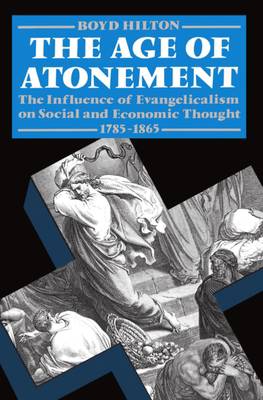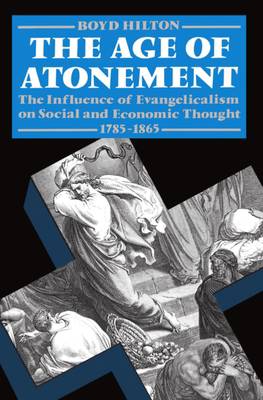
- Afhalen na 1 uur in een winkel met voorraad
- Gratis thuislevering in België vanaf € 30
- Ruim aanbod met 7 miljoen producten
- Afhalen na 1 uur in een winkel met voorraad
- Gratis thuislevering in België vanaf € 30
- Ruim aanbod met 7 miljoen producten
Zoeken
Age of Atonement
The Influence of Evangelicalism on Social and Economic Thought, 1785-1865
Boyd Hilton
€ 159,95
+ 319 punten
Omschrijving
In this study of the British upper and middle classes during the first half of the 19th century, Boyd Hilton reveals that the people of this age were obsessed with catastrophe: wars, famines, pestilences, revolutions, floods, volcanoes, and the great commercial upheavals which periodically threatened to topple the world's first capitalist system. The dominant evangelical sentiment of the day interpreted such sufferings as part of God's plan and, not wanting to interfere with the dispensations of providence, governments took a harsh, stand-on-your-own-feet attitude towards social underdogs, whether they were bankrupts or paupers. In this work, Hilton studies how the transformation of religious thought--including new ideas about the nature of God and the Atonement--affected the economics, philosophy, science, and politics of the period.
Specificaties
Betrokkenen
- Auteur(s):
- Uitgeverij:
Inhoud
- Aantal bladzijden:
- 428
- Taal:
- Engels
- Reeks:
Eigenschappen
- Productcode (EAN):
- 9780198202950
- Verschijningsdatum:
- 30/01/1992
- Uitvoering:
- Paperback
- Formaat:
- Trade paperback (VS)
- Afmetingen:
- 151 mm x 229 mm
- Gewicht:
- 693 g

Alleen bij Standaard Boekhandel
+ 319 punten op je klantenkaart van Standaard Boekhandel
Beoordelingen
We publiceren alleen reviews die voldoen aan de voorwaarden voor reviews. Bekijk onze voorwaarden voor reviews.











